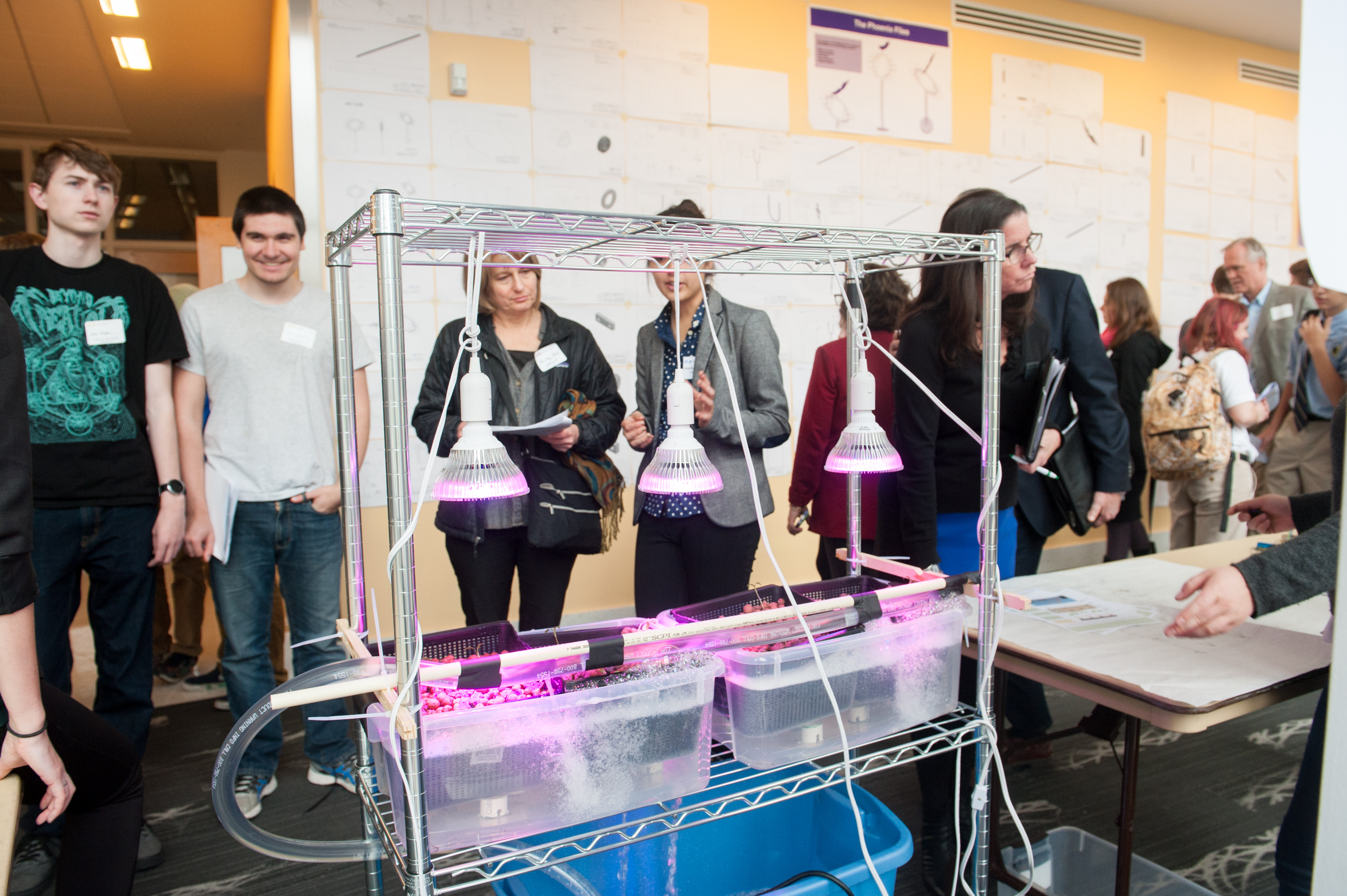Building a hydroponics system
The new Olin College of Engineering's Net Impact chapter is working on an experimental hydroponic system, a closed ecosystem where crops and marine life sustain each other. If their prototype succeeds, they plan to install a larger-scale version in the library to teach students about impact design for sustainability.

3D modeling water conservation
The Haas undergraduate chapter and Socially Engaged Engineers chapter on campus co-hosted an event that drew hundreds of applicants to imagine and prototype solutions to the California water crisis. Out of six awesome solutions, the winner was Dripit, a real-time visual indication of water consumption to be deployed on campus facilities.

Hardware for maternal health
Our new chapter at the Villanova College of Engineering held an open event for students to learn about impact design. It featured a demonstration from a student working with WeCare Solar, a nonprofit that designs portable suitcases containing solar light and birthing kits for low-resource areas without reliable electricity.

Collaborating locally
California College of the Arts, Presidio Graduate School, and the University of San Francisco have joined forces to form Bay Area Impact Design. This spring they are holding an impact event series, starting with a speaker from Kiva Zip and a human centered design sprint.

Prototyping mobility solutions
Chapters including RISD, Presidio, Berkeley, Northwestern, California College of the Arts, and more participated in a series of Net Impact Mobility Challenges - full day design sprints using a human centered design process to envision and prototypes to solutions some of the environmental and societal challenges around mobility.

